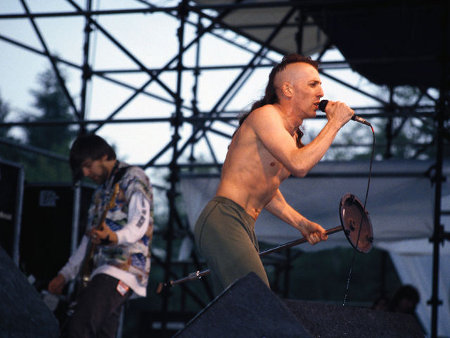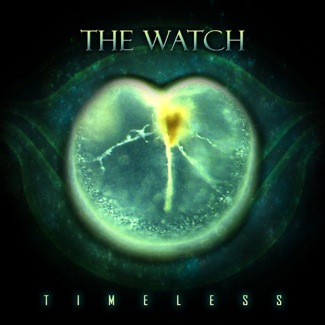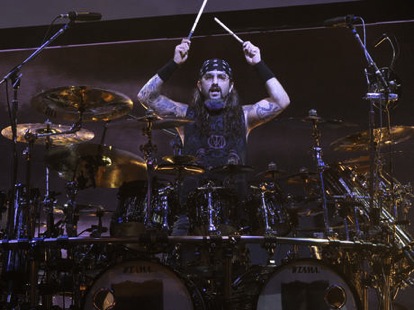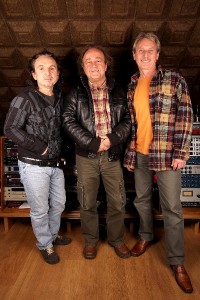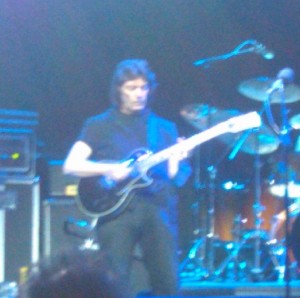First a tangent. I’m so disappointed the Sony noise canceling ear buds (WF-1000XM3) aren’t out yet. Listening to music for the purpose of a review while on a train is just brutal. These headphones are getting great write-ups as an upscale Air Pod replacement. I have been thrilled with the AirPod (1st Gen) for connectivity and sound, in that order. Hooking up to phone (with adorable animation) had never been so easy. And I also like the sound. Now, I have a chance to get improved sound (because the Sony is sonically better and because it has the active noise canceling). By all accounts, I will sacrifice some ease of connection because only Air Pods and Power Beats Pro have the H1 chip, but I think I can manage. Having now introduced other devices to my Air Pods, I almost never get to see animation, and it is not uncommon that I actually have to connect under Bluetooth in settings. Not so easy after all. So, just a few more weeks till the Sony comes out.
Now on to the new Tool record, Fear Inoculum. I have an interesting history with this band, despite not being a huge fan over the years. I’ll get to that history in a second. Everyone knows that this is the first release in over a decade. I have not yet ascertained the reason for the delay, but the music really stands (or falls) on its own. I’m not too worried about an explanation on the earliest listening.
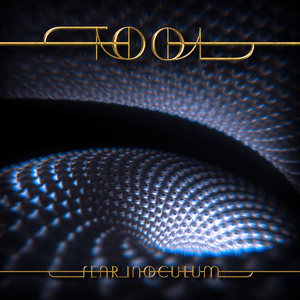
Sometimes it’s good to just take the work on its own. I realize artistic expression is often designed to have a certain outcome. Sometimes bands get back together after a really long hiatus just for the money. can you imagine? Music, perhaps more than any other mode of expression, gives the audience a chance to approach the work on its own terms, without the worry of someone constantly trying to make the hand fit into the glove.
Also, it should be noted that this album features the ‘classic’ lineup (thank you, half-assed internet research). I have an unexpected affection for the original bass player Paul D’Amour. He helped create one of my favorite albums of he 90’s after he checked out of Tool. It was Free Mars and the band was Lusk. Nothing else came of that project – no tour, no follow-up record, nada. D’Amour has landed on his feet twenty plus years later as the bass player for Ministry. I have no idea what kind of creative control he has in that endeavor, but when he DID have maximum creative input, the result was spellbinding. I could go on at length about Lusk’s one and only record, but instead I will draw focus back to more relevant matters. The new Tool.
There is a thickness to the sound with thunderous and rhythmic drums and heavily distorted guitars. Odd time signatures and polyrhythms create an atmosphere of constant movement, almost bordering on chaos, but it’s cool. That power remains, almost drones, and forms the contrasting backdrop over which singer Maynard James Keenan spills his poisoned honey. Even from the very beginning:
Immunity
Long overdue
In other words, when you get to be this old, you can’t be harmed any more. Not by the fear of life’s cruelty and uncertainty. No explanation about why it’s overdue. Like I said above, it doesn’t really matter. My opinion might be that the Immunity CAN’T come without that passage of time, and that what seems overdue is actually quite punctual. But the real sentiment is that the freedom of Immunity should have come sooner. That dissatisfaction and agitation is the young man’s game. The game that involves a stalking vision of inadequacy. This band still runs from that. This is not an album by aging superstars who are now somehow comfortable in their own skin. Instead, the search into thse dark sounds and the pain they suggest is an ongoing process. Indeed, the more time you take off, the more you have to prove upon return.
It’s not just Immunity, although that’s a good place to start and even gives the album it’s name. But the lyrical theme at the albums dramatic conclusion shifts from the ‘I don’t give a fuck you can’t hurt me’ to the other key ingredient that can only come with time: familiarity.
You are darkness
Trying to lull us in, before the havoc begins
Into a dubious state of serenity
Acting all surprised when you’re caught in the lie
We know better
It’s not unlike you
The worry over being ‘overdue’ is now replaced by a cunning that can only come with age and experience.
Let’s turn to the music. As much as Keenan provides a substantive incantation that speaks to a primal and violent side of masculinity, the amount of time when the vocal instrument is silent is by far the majority.
When it comes to music, the intensity of my love necessarily creates a lot of baggage. I have listened and studied and learned and joined and rejected and tried and failed to love every kind of music. Heavy Metal could charitably be described as a blind spot. I look to the familiar ground of Prog. Dream Theater is not a band I adore, but I have listened to several of their albums and have seen at least one love performance. I know their association with both Prog and heavy metal communities. Does that help create an easy path to Tool? Many have told, and I have read as much, that Tool is a form of Prog band.
There are similarities with Dream Theater, but I’m more struck by the difference. I would summarize the key distinction as patience. Tool seems to be a far more patient band. Perhaps that is evidenced by the thirteen years it took to get this record released. When Dream Theater engages in a ten plus minute excursion, it’s often a dance of swords. There are acrobatic feats of daring that keep the listener on their toes. Tool may employ a fancy time signature, but the emphasis is more on a chunka chunka built around Danny Carey’s controlled chaos. The pattern may be hard to discern at first, but it is there and it is relentless.
Guitarist Adam Jones is a founding member, yet his playing is so understated. There is not a single solo in this mass of music that seeks to draw too much attention to itself. On the contrary, the purpose of guitar on this record appears to be building drama and clearing a path for percussion.
And that’s the on-ramp. I was really surprised to learn that Tool wasn’t started by Carey because that polyrhythmic thunder seems to be the foundation of Tool’s sound. And not just on this record. This percussion design is not a motif or calling card, it’s more like a religion, or physics. A unifying principle from which all things in Tool-world can be better understood. Having embraced that for the first time while listening to this latest record has been a powerful revelation.
Hot take alert. I apologize in advance, but to put this in context I would suggest that the funk infusion which makes Rage Against the Machine so listenable and lovable is a mere parlor trick by comparison. A gadget play that subsequent history has proven to be unsustainable. The building plod of Tool, on the other hand, is more akin to an infinite army of Lovecraftian nasties, marching over the hill with an unimaginably huge Cthulhu leading the charge.
Both are heavy music, but in one case the reference point (hip-hop, rap, funk) takes over and becomes the thing itself, larger than anything in Rage’s music. They put themselves behind the eight ball. With Tool, the sparse simplicity of tone and poly rhythm suggests a much greater power, of which we can only see a glimpse.
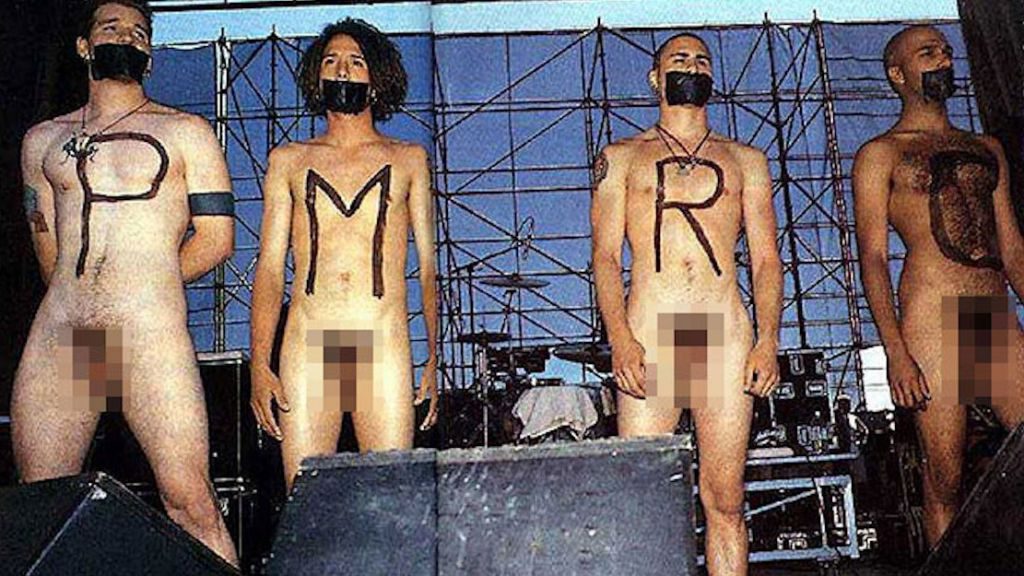
And this brings me to the opening of Lollapalooza 1993. In the sweltering August heat of Philadelphia, a friend and I staked out a space just behind the mosh pit. We were waiting to see Rage Against the Machine, then at the height of their powers. And we saw them alright. All of them. Because they came out, each completely naked (thank you, Red Hot Chili Peppers, except of a large letter painted on the chest. They turned all amplifier setting up to maximum and laid down their instruments with pickups facing the speakers. This created the most horrifying and painful feedback loop anyone should ever have to experience. The noise continued unceasingly as the band members came to the front of the stage and spelled out P-M-R-C. Take that, Tipper Gore!
After what seemed like an eternity, an unknown quartet came out to take Rage’s place. I don’t remember much of Tool’s set, but I’m proud to say I got to see one of their earliest performances. Now that I have embraced that big beat, I’m going to have an even better time reuniting with my old friend in another seat just behind the mosh pit.
